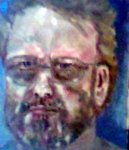I find Kevin Kelly's writing a pleasure to read. Contrary to many who popularize science he has a deep understanding of current science thinking and an uncanny ability to extrapolate it and indentify questions that are yet to be addressed.
Recently, Andreas Lloyd has "remixed" Kelly's 1994 book entitled Learning from self-organizing systems in nature and technology. Lloyd has made Kelly's book much more accessible by removing, moving and editing the original. This has become a popular method in music. See for example my son's mixes on http://www.jujujordash.com/ . [My son is Jordash]. Lloyd has adopted the method to writing.
In the final chapter Kelly raises and answers a question that sums up much of current deep science thinking.
"So how do you make something from nothing? From the frontiers of computer science, and the edges of biological research, and the odd corners of interdisciplinary experimentation, I have compiled Nine Laws of God governing the incubation of something from nothing. These nine laws are the organizing principles that can be found operating in systems as diverse as biological evolution and SimCity. Of course I am not suggesting that they are the only laws needed to make something from nothing; but out of the many observations accumulating in the science of complexity, these principles are the broadest, crispest, and most representative generalities. I believe that one can go pretty far as a god while sticking to these nine rules:
§ Distribute being
§ Control from the bottom up
§ Cultivate increasing returns
§ Grow by chunking
§ Maximize the fringes
§ Honor your errors
§ Pursue no optima; have multiple goals
§ Seek persistent disequilibrium
§ Change changes itself.
You can download and read the entire book for free at http://eskar.dk/andreas/outofcontrol/. Once you read the book, ask yourself what policy and planning measures should be promoted to advance urban and peri-urban sustainability.



